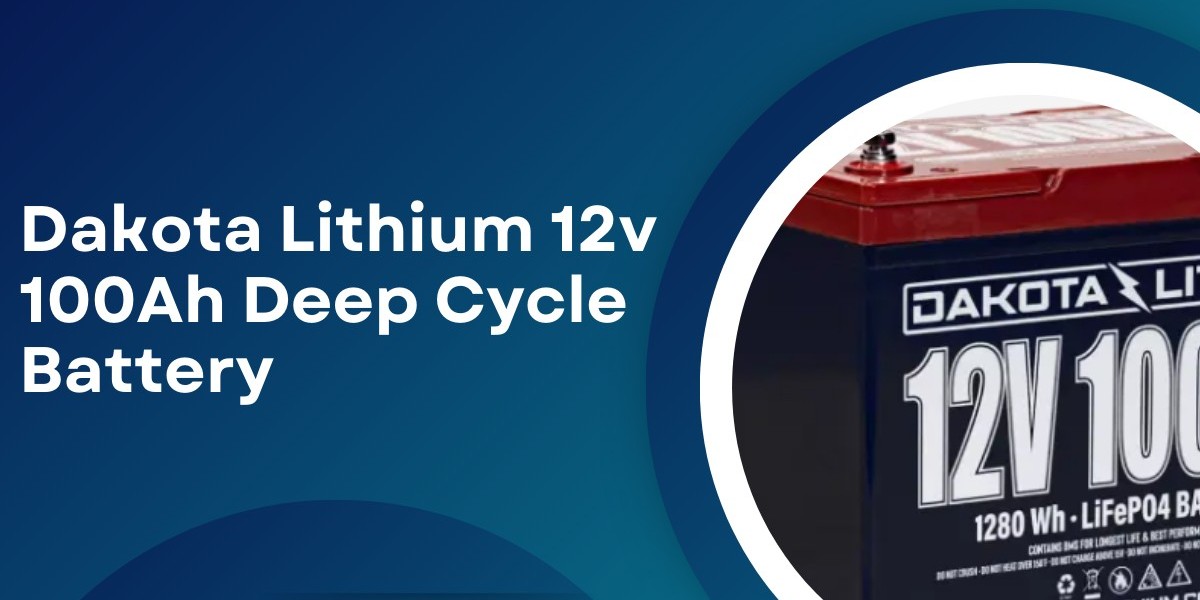In the age of growing energy demands, Deep Cycle Batteries have emerged as a trusted source of power for a variety of applications. Known for their ability to provide sustained energy over long periods, these batteries are widely used in renewable energy systems, marine applications, and recreational vehicles. But what exactly sets them apart, and how can you choose the best one for your needs? This comprehensive guide explores the world of Deep Cycle Batteries, helping you make informed decisions and ensure optimal performance.
What Are Deep Cycle Batteries?
Deep Cycle Batteries are a type of rechargeable battery designed to deliver a consistent amount of power over extended periods. Unlike traditional car batteries, which provide short bursts of energy for starting engines, Deep Cycle Batteries are built to discharge deeply and then recharge multiple times without significant loss in capacity.
Key Features of Deep Cycle Batteries
- Long-lasting energy storage
- High discharge depth (up to 80%)
- Designed for deep discharges and recharges
- Durable construction for heavy-duty use
Types of Deep Cycle Batteries
There are several types of Deep Cycle Batteries, each with unique characteristics. Understanding these can help you choose the best battery for your needs.
1. Lead-Acid Deep Cycle Batteries
- Flooded Lead-Acid Batteries: Economical but require regular maintenance.
- Sealed Lead-Acid Batteries (AGM and Gel): Maintenance-free and spill-proof, ideal for indoor use.
2. Lithium-Ion Deep Cycle Batteries
- Lightweight and compact
- Long lifespan (up to 10 years)
- Higher initial cost but lower total cost of ownership
Comparison of Lead-Acid and Lithium-Ion Batteries
| Feature | Lead-Acid | Lithium-Ion |
|---|---|---|
| Weight | Heavy | Lightweight |
| Maintenance | Regular Maintenance | Maintenance-Free |
| Lifespan | 3-5 Years | 8-10 Years |
| Cost | Affordable | Expensive |
Applications of Deep Cycle Batteries
Deep Cycle Batteries power a wide range of devices and systems, making them indispensable in various industries.
1. Renewable Energy Systems
Used in solar and wind energy setups to store power for later use.
- Reliable for off-grid applications
- Enhances energy efficiency
2. Marine Applications
Power boats, trolling motors, and onboard appliances with steady energy.
- Built to withstand harsh marine environments
3. Recreational Vehicles (RVs)
Provide energy for lights, appliances, and gadgets during camping trips.
- Ideal for extended stays off the grid
4. Golf Carts and Mobility Devices
Ensure smooth performance in electric vehicles like golf carts and scooters.
How to Choose the Right Deep Cycle Battery?
Selecting the best Deep Cycle Battery depends on several factors. Consider the following before making a purchase:
- Capacity: Measured in ampere-hours (Ah), it determines how much energy the battery can store.
- Voltage: Ensure compatibility with your device or system.
- Lifespan: Look for options with a longer cycle life to save costs in the long run.
- Maintenance Requirements: Decide between maintenance-free or traditional batteries.
Benefits of Deep Cycle Batteries
Why are Deep Cycle Batteries preferred for energy storage? Here are the top reasons:
- Durability: Designed for multiple deep discharge cycles without compromising performance.
- Energy Efficiency: Ideal for long-term energy storage and consistent power delivery.
- Versatility: Suitable for various applications, from renewable energy systems to recreational vehicles.
Tips for Maintaining Deep Cycle Batteries
Proper maintenance ensures a longer lifespan and better performance. Here are some practical tips:
- Regular Charging: Avoid letting the battery discharge completely to prevent damage.
- Clean Terminals: Prevent corrosion by cleaning terminals with a solution of baking soda and water.
- Avoid Overcharging: Use a smart charger to prevent overheating and prolong battery life.
- Monitor Water Levels (for Flooded Batteries): Check water levels regularly and refill with distilled water when necessary.
Common Myths About Deep Cycle Batteries
Misconceptions about Deep Cycle Batteries can lead to improper use. Let’s debunk a few:
Myth 1: "All batteries are the same."
Fact: Deep Cycle Batteries are specifically designed for sustained energy delivery, unlike starter batteries.Myth 2: "Lithium batteries are too expensive."
Fact: While the upfront cost is higher, their longer lifespan and efficiency often offset the expense.
Industry Insights on Deep Cycle Batteries
According to market reports, the global Deep Cycle Battery market is expected to grow significantly, driven by the increasing demand for renewable energy solutions. John Doe, an energy storage expert, states, "The versatility and reliability of Deep Cycle Batteries make them a cornerstone in the transition to sustainable energy systems."
FAQs
What makes Deep Cycle Batteries different from regular batteries?
Deep Cycle Batteries are designed for sustained energy delivery, making them ideal for long-term power needs, unlike starter batteries, which provide short bursts of energy.
How long do Deep Cycle Batteries last?
The lifespan depends on the type and usage, with lead-acid batteries lasting 3-5 years and lithium-ion batteries up to 10 years.
Can Deep Cycle Batteries be used for solar power systems?
Yes, they are commonly used in solar setups to store energy for later use.
What is the best way to maintain a Deep Cycle Battery?
Regular charging, cleaning terminals, and avoiding overcharging can prolong the battery's life.
Are lithium-ion Deep Cycle Batteries worth the cost?
While more expensive initially, their longer lifespan and efficiency make them a cost-effective choice in the long run.
How do I dispose of old Deep Cycle Batteries?
Always recycle batteries at authorized facilities to prevent environmental harm.
Conclusion
Deep Cycle Batteries are an essential component in modern energy solutions, offering reliability, efficiency, and versatility. Whether you’re powering a solar system, a boat, or an RV, choosing the right battery and maintaining it properly can significantly impact performance and lifespan. As the demand for renewable energy and sustainable solutions grows, these batteries will continue to play a pivotal role in shaping our energy future.


![HP HPE6-A81 Practice Test - Easy Way To Prepare [March 2022]](https://thewion.com/upload/photos/2022/03/JTiQaEJs79bujm9xtWBh_02_f96aae7770e41746564fd82e7115e587_image.jpg)
![100% Pass Guarantee With HP HPE2-T37 PDF Questions [March-2022]](https://thewion.com/upload/photos/2022/03/axeBVrCFlaFvJ7QyCCBK_15_cfb309e10e7a9441b59e217d7ef738a5_image.jpeg)